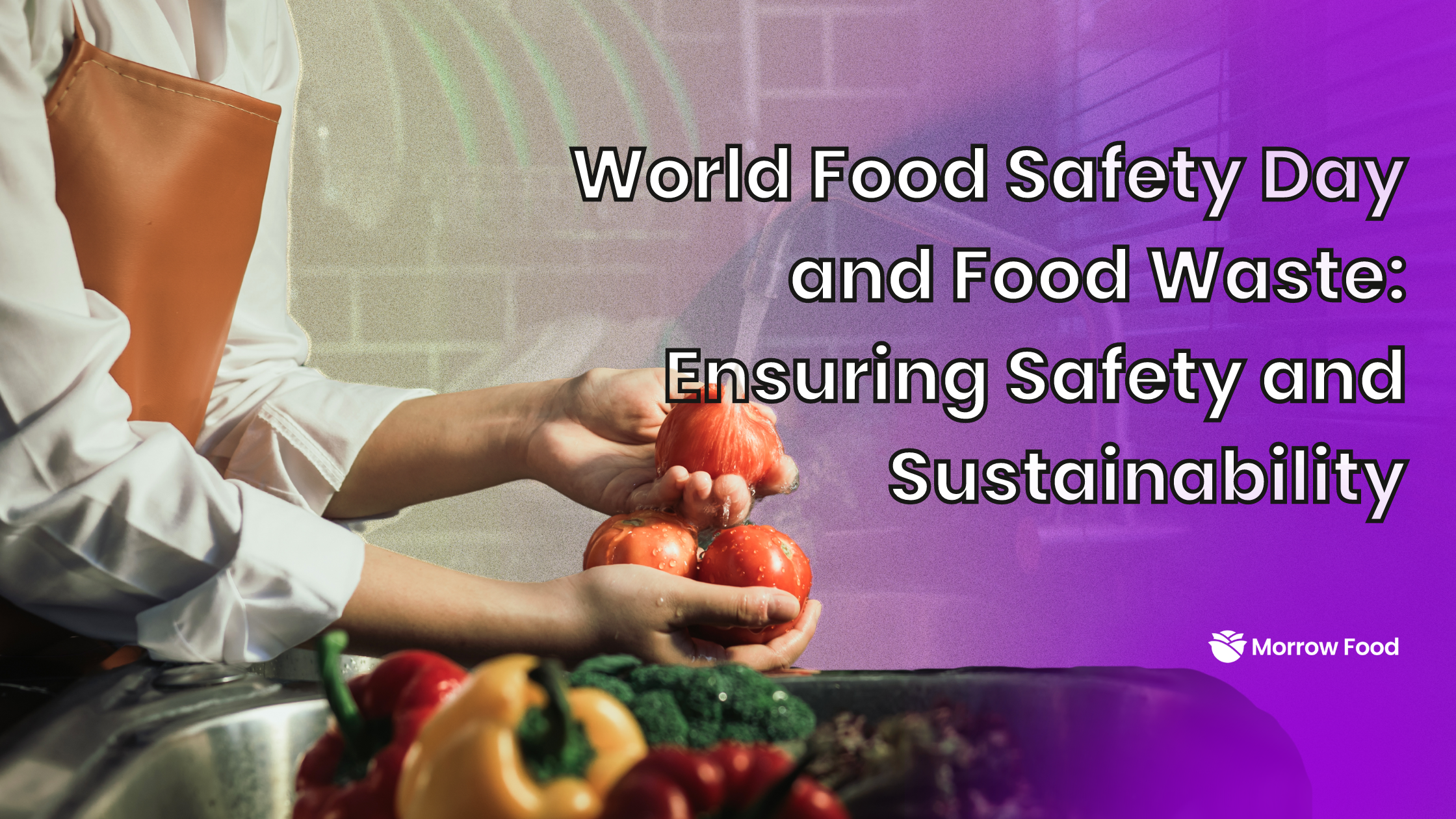World Food Safety Day, observed annually on June 7th, was established by the United Nations to raise awareness about the importance of food safety and to promote actions to prevent, detect, and manage foodborne risks. Ensuring food safety is critical for achieving better health outcomes and promoting sustainable development. This year’s theme, “Food Standards Save Lives,” highlights the role of food standards in ensuring the safety and quality of food.
The Connection Between Food Safety and Food Waste
Food safety and food waste are intricately linked. Unsafe food contributes to food waste, as food that is spoiled, contaminated, or otherwise unsafe for consumption must be discarded. Conversely, measures taken to reduce food waste can help enhance food safety by promoting better food handling, storage, and distribution practices. Addressing both food safety and food waste can lead to improved health outcomes, economic savings, and a more sustainable food system.
The Impact of Food Waste on Food Safety
- Foodborne Illnesses: When food is wasted, it often ends up in landfills, where it decomposes and can attract pests, leading to the spread of foodborne pathogens. Properly managing food waste can help reduce the risk of foodborne illnesses.
- Nutritional Losses: Food waste results in the loss of essential nutrients that could have contributed to healthier diets. Safe food handling practices can help preserve the nutritional value of food and reduce waste.
- Economic and Environmental Costs: The disposal of food waste incurs significant costs for businesses and governments. Additionally, decomposing food waste in landfills produces methane, a potent greenhouse gas. By improving food safety and reducing waste, we can save money and reduce environmental impacts.
Strategies to Improve Food Safety and Reduce Food Waste
Addressing food safety and reducing food waste requires coordinated efforts across various sectors. Here are some strategies that can be implemented:
- Education and Awareness:
- Public Education Campaigns: Educate consumers about safe food handling practices and the importance of reducing food waste. Promote understanding of food date labels to prevent unnecessary discarding of safe-to-eat food.
- Training for Food Handlers: Provide training for food handlers in restaurants, supermarkets, and other food service settings on proper food safety practices to reduce contamination and waste.
- Improved Food Storage and Handling:
- Temperature Control: Ensure that food is stored at the correct temperatures to prevent spoilage and contamination. Use technologies such as refrigeration and climate-controlled storage.
- Proper Packaging: Use appropriate packaging to extend the shelf life of food and protect it from contamination.
- Regulatory Measures:
- Food Safety Standards: Implement and enforce food safety standards that cover all stages of the food supply chain, from production to consumption. These standards should include guidelines for safe food handling, storage, and transportation.
- Waste Reduction Policies: Develop policies that incentivize the reduction of food waste, such as tax incentives for food donations and regulations that encourage the redistribution of surplus food.
- Technological Innovations:
- Smart Packaging: Develop and use smart packaging technologies that can indicate the freshness and safety of food, helping consumers make informed decisions and reduce waste.
- Food Safety Monitoring: Utilize advanced monitoring systems to detect contamination and spoilage early in the supply chain, preventing unsafe food from reaching consumers and reducing waste.
- Community Initiatives:
- Food Recovery Programs: Establish food recovery and redistribution programs that collect surplus food from retailers, restaurants, and farmers and distribute it to those in need.
- Composting and Recycling: Promote composting and recycling programs to manage food waste in an environmentally friendly manner.
World Food Safety Day 2024 underscores the importance of maintaining high standards of food safety to protect public health and promote sustainable food systems. Reducing food waste is a critical component of this effort, as it helps ensure that safe, nutritious food is available to all. By implementing comprehensive strategies that address both food safety and food waste, we can achieve better health outcomes, economic savings, and a more sustainable environment. This World Food Safety Day, let us commit to making a difference by prioritizing food safety and reducing food waste for a healthier and more sustainable future.




